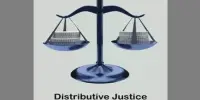Vikrum Aiyer, the current former vice president of global public policy and strategic communications at Postmates, wrote a memo to his former colleagues and other stakeholders in the gig economy to make him think about what happens next in the industry.
“We would be wrong to assume that a light tweet or a single state ballot measure toward the classification of workers creates a sustainable way to take advantage of what Americans are really concerned about: the opportunity to work, to take care of their families, and so on.” Do not worry about what will happen.
He added that how can technology platforms, labor lawyers and other stakeholders “not agree to develop and give an inch to their respective models,” which means “we will never see progress that both empowers on-demand work and improves society? Safety net, “Aiyer wants to end “this Assamese war that pitted workers against capital, technology against trade unions, conservatives versus liberals”.

In the letter, Aiyer made a handful of recommendations for on-demand tech companies. He proposes, for example, that companies give board seats to workers with the right to vote, take portable benefits “which could close the gap between W2 and what is available to individual workers” and consider sectoral bargaining for Gig workers:
Sectoral bargaining for individual workers would be an innovative reform that could provide a sector-wide floor in terms of income and benefits while maintaining IC classification. Some in organized labor have suggested increasing the bargaining power of all workers without classification. Before the industry rejects this outright and since it has not done before in the United States, it tests Congress, GAOs, or university class centers to examine how card, checks considered for rules, no-confidence laws, and federal premiums. Can empower workers and prevent less disruptive companies from gaining competitive advantage in the bottom line.
Although Aiyer was a proponent of California Proposition 22 with Postmates and Uber, which classified Jig workers as legally independent contractors, he said he did not want its carbon copy to apply nationwide.
“While Prop 22 was one step ahead when the technocrats argued to balance workers with more benefits at the top of the 1099 status, there are two things that need to be determined the rest of the way,” he said at TechCrunch.
The first is that this type of work has become rather popular, especially since the COVID-19 epidemic has lost millions of jobs across the country. Second, Aiyer says it is important for workers to get input from them because companies impose similar laws in other parts of the country or at the federal level.
Aiyer pointed to the main difference between Los Angeles vs. New York Postmates Courier. In Los Angeles, Aiyer said many Postmates are in courier cars, while in New York many are on bikes. Prop 22 has set a new standard for insurance standards, but “it may not be the same kind of coverage if someone on top of the bike wants it.”
“Prop 22 has set a precedent for California, but it is certainly not the ceiling of broad security net reform and what the nationwide policy should look like,” he said.
For some gig workers, however, they have long said they do not want to be a standalone contractor – even if it comes with some additional benefits. Instead, some have said they want to be employees and be entitled to the full opportunity that provides W-to status.
















